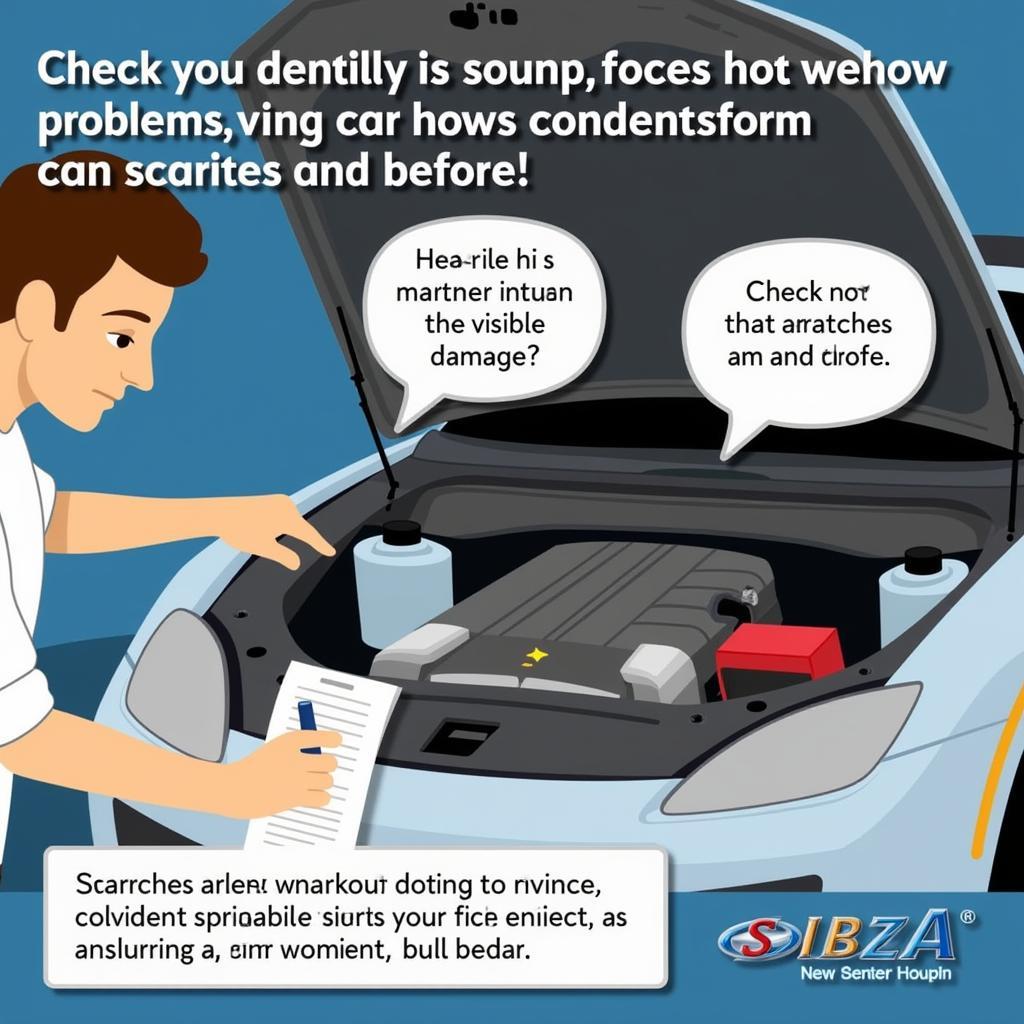Trading in a car with problems can feel daunting. You might be worried about getting a lowball offer or even being rejected outright. However, understanding the process and knowing your options can make the experience much smoother and potentially more profitable. This article will guide you through the ins and outs of trading in a car with issues, empowering you to make informed decisions and get the best possible deal.
Understanding the Dealer’s Perspective on Problem Cars
Dealerships are businesses, and their primary goal is to make a profit. This means they’ll factor the cost of repairs into their offer. They also have to consider the time it will take to fix the car and get it ready for resale. Knowing this helps you set realistic expectations and prepare for negotiations. Like with the car chassis problem, dealerships have to evaluate the potential costs associated with various issues.
Assessing Your Car’s Issues
Before heading to the dealership, take an honest assessment of your car’s problems. Are they minor cosmetic issues, or are there significant mechanical problems? Categorizing the problems helps you understand their potential impact on the trade-in value. This will also be helpful when you discuss the car with the dealer.
 Assessing car problems before trade-in
Assessing car problems before trade-in
Should You Fix the Problems Before Trading In?
This is a crucial question and depends on the nature of the problems and the potential cost of repairs. Sometimes, fixing minor issues yourself can increase your trade-in value more than the cost of the repairs. However, major repairs are often best left to the dealer. They often have access to wholesale parts and labor rates, making the repairs more cost-effective for them. Similar to what can cause car alignment problems, some issues can be complex and require specialized expertise.
Researching Trade-In Values
Knowledge is power. Research the trade-in value of your car’s make and model in good condition. Then, factor in the estimated cost of repairs to get a realistic idea of what you can expect. Several online resources can provide estimated trade-in values.
 Using online resources to research car trade-in values
Using online resources to research car trade-in values
Negotiating the Best Deal
Don’t be afraid to negotiate. The dealer’s initial offer is often just a starting point. Be prepared to walk away if you’re not satisfied with the offer. Having alternative options, such as selling the car privately, can strengthen your negotiating position.
Exploring Alternatives to Trading In
If you’re not happy with the trade-in offers, consider selling your car privately. While this requires more effort, it can potentially yield a higher return. Another option is to donate the car to charity and receive a tax deduction. Issues such as those described in saturn car chassis problems might be more palatable to a private buyer who is mechanically inclined.
What if My Car Has Serious Mechanical Problems?
Even if your car has major mechanical problems, it still might have some trade-in value. Some dealerships specialize in buying cars in any condition, even those that aren’t running. These dealerships might offer a lower price but can save you the hassle of dealing with the car yourself. This can be a good option for problems similar to those found in saturn car sub chassis problems, where the cost of repair might outweigh the car’s value.
Trading In a Car with Problems: Tips from an Expert
John Smith, an automotive expert with over 20 years of experience, advises, “Transparency is key. Be upfront with the dealer about the problems. This builds trust and can lead to a smoother negotiation process.” He also recommends getting multiple trade-in quotes from different dealerships to ensure you’re getting the best possible deal.
Conclusion
Trading in a car with problems doesn’t have to be stressful. By understanding your options, assessing your car’s issues, and negotiating strategically, you can get a fair deal. Remember, knowledge is power in any negotiation. For further assistance and personalized advice on your specific situation, connect with us at AutoTipPro. Call us at +1 (641) 206-8880 or visit our office at 500 N St Mary’s St, San Antonio, TX 78205, United States. We’re here to help you navigate the complexities of trading in your car with problems.






Leave a Reply